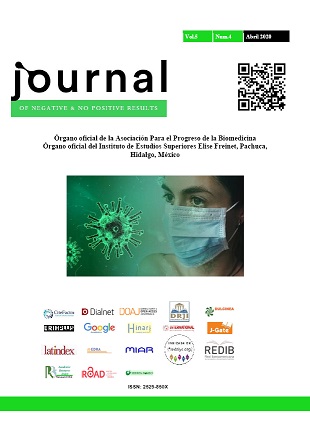Benefits and damages of Screening. Overdiagnosis and anticipatory medicine
DOI:
https://doi.org/10.19230/jonnpr.3299Abstract
Treatment of breast cancer has changed markedly since the publication of papers recommending screening programs for early diagnosis. Posterior reevaluations demonstrated mistakes; advances in oncological therapy and better knowledge of the problem have demonstrated the doubtful efficacy of these procedures which, on the other hand have also side effects with risk of overdiagnosis and overtreatment. Misinformation confuses patients. This procedure has been recommended by many institutions without explaining possible important risks. It is very easy to promote mammograms if the majority feel that it reduces risk of breast cancer and saves many lives. Unfortunately this is not the case. At present there are many people against screening who are recommending explicit and precise explanations of the procedure as well as of the importance of physical examination. Women must discuss with their physicians their own risk, possible benefits and eventual risks and damages of mammograms and they must take informed decision about screening. Women should be classified in those with potential benefits of mammograms and those with more risks than benefits. A program which does not offer clearly more benefits than risks cannot be implemented by Public Heath institutions. Complete and impartial information, adequate attention and prevention of overdiagnosis and overtreatment would be the best option.
Downloads
References
Sackett DL, Holland WW. Controversy in the detection of disease. 1975 Lancet; 23:357-359
Sackett DL. The arrogance of preventive medicine. 2002CMAJ; 167 (4) 363-364.
Nyström L, Rutqvist LE, Wall S, et al. Breast cancer screening with mammography: overview of Swedish randomised trials. Lancet 1993;341:973–8.
Gøtzsche PC, Nielsen M. Screening for breast cancer with mammography. Cochrane Database Syst Rev 2009;4:CD001877
Bleyer A, Welch G. Effect of Three Decades of Screening Mammography on Breast-Cancer Incidence. N Engl J Med 2012;367:1998-2005. DOI: 10.1056/NEJMoa1206809
NBCC. National Breast Cancer Coalition. Mammography for Breast Cancer Screening: Harm/Benefit Analysis. 2011.Doi: www.breastcancerdeadline2020.org/breast-cancerinformation/breast-cancer-information-and- positions/mammography-for-breastcancer.pdf
Gøtzsche PC, Jørgensen KJ. Screening for breast cancer with mammography. Cochrane Database Syst Rev. 2013;6:CD001877.
Gøtzsche PC. Mammography screening: truth, lies and controversy. London: Radcliffe Publishing; 2012.
Jørgensen KJ, Keen JD, Gøtzsche PC. Is mammographic screening justifiable considering its substantial overdiagnosis rate and minor effect on mortality? Radiology 2011;260:621-6.
Biller-Andorno N, Jüni P. Abolishing mammography screening programs? A view from the Swiss Medical Board. N Engl J Med. 2014;370:1965-1967.
Gøtzsche PC , Harting OJ, Nielsen M, et al. La mamografía como método de cribado para detectar el cáncer de mama. Centro Nórdico Cochrane 2012.https://nordic.cochrane.org/sites/nordic.cochrane.org/files/public/uploads/images/mammography/mamo grafia-es.pdf.
Prasad V, Lenzer J, Newman DH. Why cancer screening has never been shown to "save lives"—and what we can do about it. BMJ. 2016;352:h6080.
Gigerenzer G. Full disclosure about cancer screening. BMJ. 2016;352:h6967
Published
Issue
Section
License
All accepted originals remain the property of JONNPR. In the event of publication, the authors exclusively transfer their rights of reproduction, distribution, translation and public communication (by any sound, audiovisual or electronic medium or format) of their work. To do so, the authors shall sign a letter transferring these rights when sending the paper via the online manuscript management system.
The articles published in the journal are freely used under the terms of the Creative Commons BY NC SA license, therefore.
You are free to:
Share — copy and redistribute the material in any medium or format
Adapt — remix, transform, and build upon the material
The licensor cannot revoke these freedoms as long as you follow the license terms.
Under the following terms:
Attribution — You must give appropriate credit, provide a link to the license, and indicate if changes were made. You may do so in any reasonable manner, but not in any way that suggests the licensor endorses you or your use.
NonCommercial — You may not use the material for commercial purposes.
ShareAlike — If you remix, transform, or build upon the material, you must distribute your contributions under the same license as the original.
No additional restrictions — You may not apply legal terms or technological measures that legally restrict others from doing anything the license permits.

This work is licensed under a Creative Commons Attribution-NonCommercial-ShareAlike 4.0 International License

























